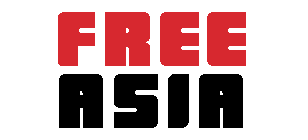October 28, 2016
FAM: Southeast Asia Globe tells us how in Southeast Asia, there is a man who wants to win power by taking it out on some of the most vulnerable people in society.
(Southeast Asia Globe) – In the short term, users may experience a euphoric energy burst, acute alertness and a rapid heart beat. Long-term effects include addiction, debilitating psychosis, severe mood disturbances, amnesia and dental problems.
Methamphetamines have risen to “dominate Southeast Asia’s illicit drug market” according to Jeremy Douglas, the UN Office of Drugs and Crime (UNODC) representative for the region.
VIDEO: al-Jazeera: Rise in use amongst upper and middle class users especially in methamphetamine. Most manufacturing is done in southeast Asia – especially in Myanmar.
Meth seizures in the region quadrupled from 2008 to 2013, according to UNDOC figures, and in mainland Southeast Asia, the meth business was valued at $15 billion in 2013.
Anxieties about the meth trade are manifesting in the Philippines, where Rodrigo Duterte has launched a brutal ‘war on drugs’.
In September, the president extended the crackdown, which has already claimed over 3,000 lives, saying that there remain too many dealers and that he “cannot kill them all”.
John Collins, executive director of the London School of Economics’ International Drug Policy Project, said Duterte’s crackdown will undoubtedly “hollow out communities through violence, killings and an erosion of the rule of law.”
https://www.youtube.com/watch?v=YQe46-1URFQ
Jennilyn Olayres cradles the body of her husband Michael Siaron after he was gunned down by vigilantes in a street in a rundown area of Manila’.
As well as facilitating human rights abuses, experts such as Douglas suggest that Duterte’s strategy will fail to address the country’s drug problem in the long term. “Targeting at the low level is not likely to have much more than near-term impact on street distribution,” he said.
UPDATE:
Duterte take note. Taksin's 'war on drugs' was a disaster. This is an enlightened, practical, humane approach. https://t.co/qhrt6AFSZt
— Andrew J Phelan (@ajphelo) November 27, 2016
It is not the first time a Southeast Asia administration has launched a war on drugs. In early 2003, Thailand’s then-prime minister, Thaksin Shinawatra, announced the beginning of a crackdown, saying: “In this war, drug dealers must die.”
As with Duterte, Thaksin’s bravado earned him support from the Thai public early on – an independent poll showed that 90% of the electorate initially backed the policy.
Up to 2,800 people were killed within three months, over half of whom reportedly had no links to the drugs trade. Although there was a short-term dip in drug use, worryingly high levels of consumption soon returned. In 2015, Thailand’s narcotics agency seized a staggering 1,140 kilos of crystal methamphetamine and 9,750 kilos of methamphetamine tablets. And, according to UNDOC, the number of meth labs grew from 2 between 2008 and 2010 to 193 by 2012.
Foreign minister Paiboon Koomchaya told Reuters in July that the policy had been a failure, and even hinted at the possibility of reclassifying meth to minimise the mandatory penalty for possession, suggesting a paradigm shift in the nation’s drug policy.
“The world has lost the war on drugs, not only in Thailand,” he said.
Comments








